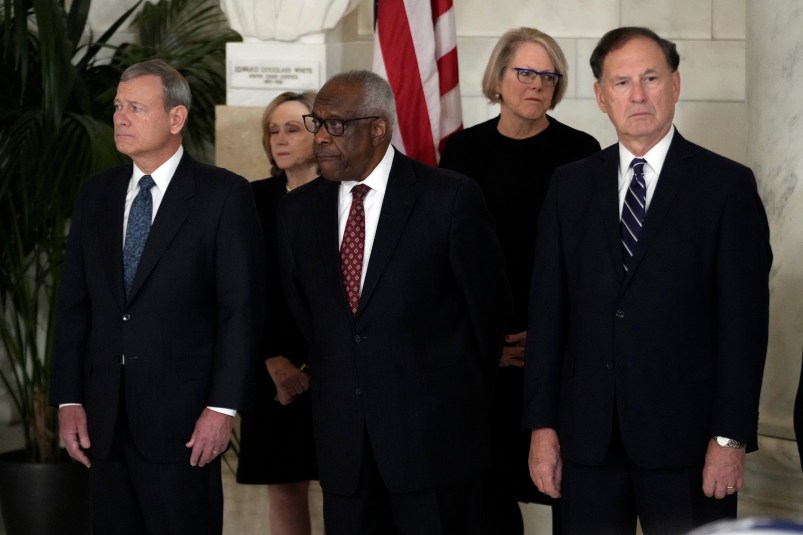For those of us who are not economists, where do we go to get a sense of just what is going on? Is the bailout a good or bad deal? Are things going to get worse before they get better or a lot worse before they get better?
Two blogs I’m watching closely at the moment are Paul Krugman’s blog at the NYT and Nouriel Roubini’s blog at RGE Monitor. Roubini is the man of the moment for, to a great degree, predicting well in advance much of what has transpired over recent months and weeks. Economist Brad DeLong’s blog and Barry Ritholtz’s blog are also key.
To be clear, these are only a few examples. And we’re going to try to put together a lengthier and more comprehensive list. But these are some places to start.
In case you’re wondering, Krugman’s take seems to be that we need a major government intervention and that even though the Dodd/Frank revision of the original Paulson plan is pretty bad on a lot of counts, it was probably the best the Dems could do with Bush still in office. And at this moment it’s probably better than the other politically-viable alternatives — including doing nothing and waiting for January. Here are the details from Paul.
What I find increasingly troubling is that a lot of people whose opinions I respect seem to think the buying up the toxic debts model is fundamentally misguided — that we’d be better stewards of taxpayer money and accomplishing more good by using the government money to recapitalize these ailing firms by buying big equity stakes in them. In a sense, I guess, we’d be setting up what amounted to a limited lifetime US sovereign wealth fund (I know it’s not precisely like that, but a little) to do what the Gulf emirates and others have been doing on an ad hoc basis through much of this year.
(ed.note: On most issues I write about on TPM, I do so with what I believe is some level of expertise, at least a solid enough understanding of the issues to know what I do and don’t know. This high-wire economics and finance stuff is in a different category. So I’m trying to strike a balance between not writing about what I don’t know about while also trying to point you in the direction of people who do. All of which is to say that on these topics I would more aggressively than usual check my speculation against other more knowledgable sources like the ones I’ve linked to above. — jmm)
Late Update: Seems some economists don’t think they’re in a much better position than I am. From an academic economist …
I suppose we economists are in a relatively good position to pontificate on the bailout. But it’s an elephantine analysis. I know that the government is likely to do badly in most trading situations because of private information. I know that there can be liquidity problems in an economy.
But our real training is to boil a problem down to one or maybe two choice variables and figure out what effect small changes have on a fairly simple measure of welfare. Here, the problem is what to do with a melting down economy that has a central problem of information in a market (housing) that is beyond our comprehension in itself. I like to flatter myself that I am a leading housing economist, but all I know about the fundamental value of my house is that it is somewhere between $450,000 and $1,250,000. Economists do not have the tools to forecast with any precision what effect a major intervention would have, even if you held constant a lot of stuff that will not be held constant over the course of the intervention.
Things like “this bailout will create bad incentives down the road” may be true and important but are impossible to quantify on the same dimension as the also impossible to calculate “the economy will shut down if we don’t do something soon.”
Latter Update: I’m interested in what seems to be a growing consensus that Hank Paulson made an extremely bad decision letting Lehman go down the tubes.






